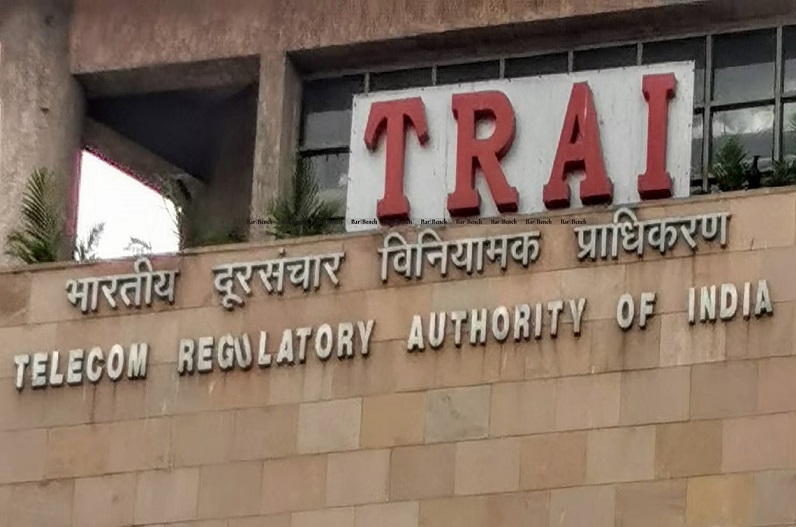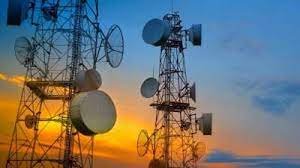Telecommunication Bill, 2023 was introduced in the Lok Sabha on Monday. The bill was reportedly cleared by the Union Cabinet in August 2023, but the approved draft had not been made public. The telecom bill was first released and put up for consultation in 2022 and aims to repeal the Indian Telegraph Act, 1885, Indian Wireless Telegraphy Act, 1933, and The Telegraph Wires (Unlawful Possession) Act,1950.

The tabling of this bill was unexpected, with reports previously stating that the government planned to “conduct deeper inter-ministerial discussions on some of the issues, under the bill and did intend to table it in the winter session of the Parliament.
Member of Parliament (MP) Ritesh Pandey argued against the introduction of the Telecommunication Bill as a money bill, stating that this would keep it outside the scrutiny of the Rajya Sabha. He requested that the bill should be released as an ordinary bill.
Changes to Telecommunication Spectrum Allocation
The Telecommunication bill allows government to assign a particular part of a spectrum that has already been assigned to an entity, known as the primary assignee, to one or more additional entities, known as the secondary assignees. The secondary assignment can only happen in situations where it does not cause harmful interference in the use of the relevant part of the spectrum by the primary assignee and is subject to the terms and conditions that may be prescribed.
It also says that certain satellite-based services like Global Mobile Personal Communication by Satellites, National Long Distance and International Long Distance, Mobile Satellite Service in L and S bands would be provided spectrum via administrative allocation.
This falls in line with the requests made by satellite communication projects like Amazon’s Project Kuiper, SpaceX and Bharti Airtel-backed OneWeb which had been urging for administrative allocation in their responses to a consultation carried out by the Telecom Regulatory Authority of India (TRAI).
The Telecommunication Bill provides emergency power to the Govt
In case of any public emergency, including disaster management, or in the interest of public safety, the central government the state government, or any officer authorised by the central/ state government if satisfied that it is necessary or expedient to do so, in the interest of the sovereignty and integrity of India, defence and security of the State, friendly relations with foreign States, public order, or for preventing incitement to the commission of any offence can :
(a) take temporary possession of any telecommunication service or telecommunication network from an authorized entity; or
(b) provide for an appropriate mechanism to ensure that messages of a user or group of users authorized for response and recovery during a public emergency are routed on priority.
(c) direct that any telecommunication service or class of telecommunication services to or from any person or class of persons, to and from any telecommunication equipment or class of telecommunication equipment, or relating to any particular subject, transmitted or received by any telecommunication service or telecommunication network, shall be suspended.
Press messages, intended to be published in India, of correspondents accredited to the Central Government or a State Government shall not be intercepted or detained unless their transmission has been detained by the government.
User Protection Measures under the Telecommunication Bill
On curbing spam: The government can prescribe measures for protecting users from messages advertising or promoting goods, services, interest in property, business opportunities, employment opportunities, or investment opportunities. These measures can include—
- Obtaining prior consent of users for receiving such messages
- Preparation and maintenance of “Do Not Disturb” registers (one or more) to ensure that users do not receive such messages without their prior consent.
- A mechanism for users to report malware or any messages that don’t obtain their consent.
Restricting impersonation of others: The bill says that no user of a telecommunication service should furnish any false particulars, suppress any material information, or impersonate another person while establishing his identity for available telecom services. They must also not fail to share the information required under this act.
Dispute resolution mechanisms: The government may establish or approve one or more online dispute resolution mechanisms for the resolution of disputes between users and telecommunication services. Every authorised entity providing telecom services must participate in the dispute resolution mechanism and must comply with such terms and conditions of participation in such mechanism as may be prescribed.
Does the Telecommunication Bill reduce TRAI consultation?
The authorisation regime for online communication services was also discussed during the consultation carried out by the TRAI in July this year. This consultation addressed a back-dated reference by the Department of Telecommunications (DoT) from 2022 which asked TRAI to reconsider the lack of regulation for messaging and calling applications and also asked it to recommend a policy for the selective banning of online communication services during periods of unrest/crisis that are likely to be used by terrorists/anti-national elements.
There is yet to be any outcome of this consultation and with the telecom bill being tabled in Lok Sabha, one is left to wonder: what was the point of this consultation if its findings were not going to be considered by the DoT?
Will the Telecommunication Bill provide a new chairperson for TRAI?
The bill amends the Telecom Regulatory Authority of India (TRAI) Act, 1997. It changes Section 4 (appointment of TRAI Chairperson and other members) and says that the chairperson must have at least thirty years of professional experience and must have served as a member of the board of directors or a chief executive of a company in specified in this section of the TRAI Act. Under Section 4, the TRAI chairperson must have professional experience in telecommunication, industry, finance, law, accountancy, management, or consumer affairs.

Similarly, it also changes the criteria for the appointment of TRAI members stating that a member must have at least twenty-five years of professional experience and has served as a member of the board of directors or chief executive of a company specified under section 4. This tells us that the TRAI chairperson and members may now be appointed from the private sector.
The Telecommunication Bill invites Govt intervention
The bill requires online communication services to seek government authorization to carry out their operations in India, subject to such terms and conditions (including fees and charges) as may be prescribed. The previous draft of the bill required online services to obtain a license for their operations, just like telecom companies are currently expected to. Including online services like WhatsApp and Telegram under the same regulation as telcos equate the services provided by two following along with the idea of “same service, same rules” that telecom companies have previously for.
While the term licensing has been replaced by authorization, in practice, both licensing and authorization imply the same: you need permission from the government to operate an online service in India. This inclusion has taken place despite multiple stakeholders like CUTS Centre for Consumer Action, Research & Training stating that online platforms are not substitutes for telecom companies because they differ on an operational and functional level. Telcos can acquire the spectrum, and build network infrastructure, while online platforms cannot. As such, equating them to each other, CUTS had said, would lead to overregulation.
Permission to carry out mergers/demergers: Authorized entities can undertake mergers, demergers or acquisitions subject to any law in force at the time of such restructuring. The authorized entity emerging from such restructuring must comply with the terms and conditions applicable to the original entity and any other terms and conditions that may be prescribed by the government.
Biometric identification for telecom service users: The government can notify certain telecom services that have to identify the person they are providing their services to through the use of any verifiable biometric-based identification as may be prescribed.












